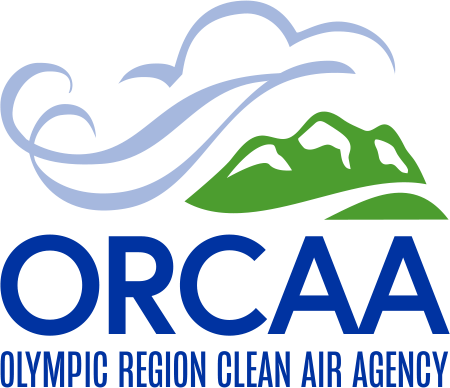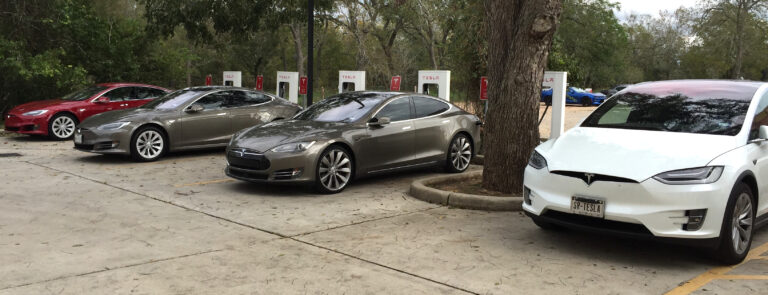With continuing intrusions of smoke from wildfires in northeast Washington and southern British Columbia, air quality throughout ORCAA’s jurisdiction has reached Unhealthy Levels throughout all six counties. While weather conditions are forecast to bring relief from the smoke later this week — predicted clearing on Thursday — the current elevated levels of fine particulate matter pollution (PM2.5) mean local residents may face health risks from the smoke.
Real-time air quality data is available here: https://fortress.wa.gov/ecy/enviwa/
NOTE: Since the Grays Harbor Air Monitoring station remains off-line due to technical issues, residents there should refer to the Pacific County data.
While ORCAA does not have trained health care professionals on staff, the agency does work closely with the state Department of Health (DOH) when air pollution events like the current wildfire smoke intrusions impact communities.
As the leading health experts in the state, the professional staff at DOH provides guidance to residents on the most efficient and effective means of coping with wildfire smoke events such as we are experiencing this week in western Washington.
Residents should refer to the DOH website for general information. Residents may also contact their local county Health Department. But for individual health guidance, people should contact their personal physician.
The DOH provides the following recommendations for helping cope with wildfire smoke events.
What can I do to protect myself and my family from outdoor smoke?
- Check local air quality reports and listen to news or health warnings for your community.
- Avoid physical exertion outdoors if smoke is in the air.
- If you have asthma or other lung diseases, make sure you follow your doctor’s directions about taking your medicines and follow your asthma management plan. Call your health care provider if your symptoms worsen.
- Stay indoors and keep indoor air as clean as possible. Take the following steps when indoors:
- Keep windows and doors closed. Track the air quality and open your windows for fresh air when the air quality improves. Pay attention to the heat indoors and follow the guidance in the section below if it’s too hot.
- Run an air conditioner, set it to re-circulate and close the fresh-air intake. Make sure to change the filter regularly.
- Use an air cleaner with a high-efficiency particulate air (HEPA) filter to reduce indoor air pollution. A HEPA filter will reduce the number of irritating fine particles in indoor air. A HEPA filter with charcoal will help remove some of the gases from the smoke. Do not use an air cleaner that produces ozone. See California’s air cleaning devices for the home fact sheet (PDF).
- Don’t add to indoor pollution. Don’t use food boilers, candles, incense, fireplaces, or gas stoves. Don’t vacuum unless your vacuum has a HEPA filter, because vacuuming stirs up particles already inside your home. Don’t smoke, because smoking puts even more pollution into the air.
- Consider leaving the area if the air quality is poor and it’s not possible to keep indoor air clean, especially if you or those you are caring for are having health problems or are in a sensitive group. See section above titled, who is especially sensitive to smoke.
For more information about keeping indoor air free of smoke: Improving Ventilation and Indoor Air Quality during Wildfire Smoke Events (PDF).
What if I don’t have air conditioning and it’s hot indoors?
Even when the air quality is poor, it’s always important to pay attention to the heat and stay hydrated—overheating is dangerous. If it’s too hot indoors to keep your windows and doors closed, first consider leaving the area or going to an indoor place with air conditioning, like a friend or relative’s home. If it’s hot indoors during poor air quality, these steps can reduce the heat:
- Close curtains to reduce heat gain during the hottest part of the day.
- Use fans to circulate the air.
Should I use a face mask when there is outdoor smoke?
If you cannot leave the smoky area or find other ways to reduce your exposure, certain types of face masks can provide some protection. Respirator masks labeled N95 or N100 filter out fine particles but not hazardous gases (such as carbon monoxide). These masks can be found at many hardware and home repair stores and pharmacies. Face masks will not work for everyone.
- Masks do not work on people with beards because they do not seal well enough to provide protection.
- Masks are not currently approved for infants or small children.
- Anyone with lung disease, heart disease, or who is chronically ill should consult a healthcare provider before using a mask. Wearing a mask makes it more difficult to breathe, which may worsen existing medical conditions.
- More information
- Wildfire Smoke and Face Masks Fact Sheet (PDF)
- Wildfire Smoke and Dust Masks at Work (PDF)
Can I use an air filter in my home to improve indoor air quality?
Some room air cleaners can reduce indoor air pollution if they have the proper filter. The most effective air cleaners have a HEPA filter. HEPA filters can reduce the smoke particulates in indoor air. HEPA filters with charcoal can also remove or reduce the amount of some other harmful gases from indoor air. These air cleaners should be used in the room where you spend most of your time, which is often a bedroom.
For more information, see California’s air cleaning devices for the home (PDF).
Should I exercise when it’s smoky?
Exercise is very important for health. When you exercise your air intake is increased, which means inhaling more pollution when the air quality is bad.
- Avoid outdoor exercise when air quality is in the Unhealthy, Very Unhealthy, or Hazardous categories.
- When the air quality is in the Very Unhealthy or Hazardous categories, consider the indoor air quality and consider limiting indoor exercise.
If you are sensitive to smoke, you should limit your activities when air quality is in the Unhealthy for Sensitive Groups category. People with asthma and lung and heart conditions may be very sensitive to poor air quality and may start to have symptoms when air quality is in the Moderate category and they should consider reducing indoor and outdoor activities.
What should I do if I have to drive when it’s smoky?
Avoid driving, when possible. If you must drive, keep the windows closed. Use the air conditioner. Most vehicles can re-circulate the inside air which will help keep particle levels lower, however, carbon dioxide levels can build up and cause sleepiness. You may have to open the vents periodically. Maintain your car intake filters.
What can schools do to protect students during smoky conditions?
- The Air Pollution and School Activities Guide (PDF), provides recommendations for recess, P.E., and athletic events and practices during smoky conditions. This guide is based on air quality categories used in the Washington Air Quality Advisory Map.
- Follow the guidance for schools on keeping indoor air free of smoke:
- Improving Ventilation and Indoor Air Quality during Wildfire Smoke Events (PDF)

